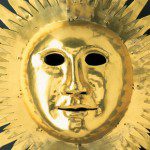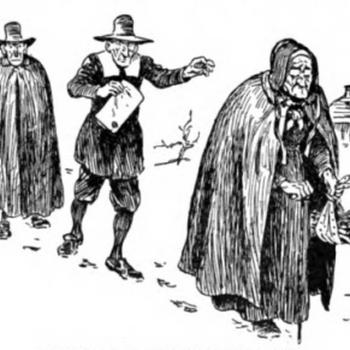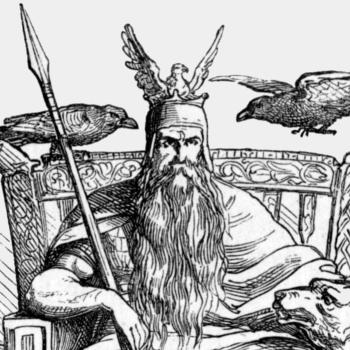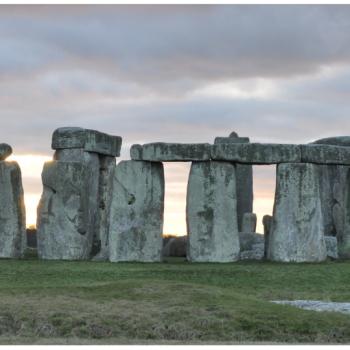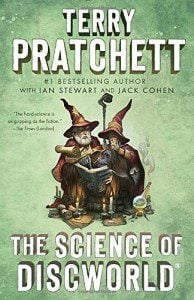 Terry Pratchett, Ian Stewart and Jack Cohen, The Science of Discworld
Terry Pratchett, Ian Stewart and Jack Cohen, The Science of Discworld
(1999)
The Science of Discworld is maybe the third book I’ve featured in my Pagan & Spiritual Book Reviews that isn’t directly related to Paganism or spirituality – but I believe it is still very much of interest to Pagans, particularly those of a Humanist/Naturalist persuasion.
Written by fantasy legend Terry Pratchett in collaboration with popular science writers Ian Stewart and Jack Cohen, The Science of Discworld isn’t perhaps what you might think it would be from the title. It is not a book explaining the laws of Pratchett’s Discworld in which the majority of his fantastic satirical books are set. It is a book explaining the science of our world, but by using the Discworld as an amusing comparative example.
The Science of Discworld is split in two. Half the chapters tell a Discworld story: in Unseen University (a university of wizards that forms the centre of the Discworld’s “academia”), an experiment accidentally results in the creation of a universe – our universe, in fact. Being outside our universe’s constraints of space and time, the wizards are able to observe and interact with the universe as it zips through its development, and eventually focus their attention on the emergence and evolution of life on a particular planet. Which is of course Earth.
The other chapters, which alternate with the Discworld story, are scientific expositions on a huge variety of fields, all relating to what’s happening in the story. When life starts appearing in the universe in the Discworld story, the following chapters are about the real science behind the origin of life and evolution, for example. Other fields explored include physics, anthropology, psychology, statistics, and even the examination of what “science” is. But as you would imagine from a Pratchett book, these explanations are no dry lecturers. They are funny, fascinating and extremely entertaining and easy to read. And although this book was written in 1999, most of the science in here still feels pretty fresh.
Why is this book relevant for Pagans? Firstly, I believe that all Pagans should read as much science as possible, because science is ultimately the study of our universe, which in turn is how we understand that which we consider sacred. And being so entertaining and pleasurable to read, as well as featuring amusing parodies of magic-workers, The Science of Discworld is a great choice for Pagans casually wanting to expand their scientific knowledge. It’s what happens when you get collaboration between those interested in science, and those interested in magic (which Pratchett most definitely was). The Science of Discworld is about looking at our world from two different perspectives: the untrained human perception of the world (also called “folk physics”), which is represented by the Discworld wizards, and the scientific view (aka real physics), which is elaborated in the expositions. The Discworld wizards do not merely observe things from a “folk physics” perspective; their universe actually runs on this kind of physics, in which outcomes are determined by “narrativium” (i.e. things happen because of narrative causality). They therefore find our universe, which contains no narrativium, utterly bewildering.
This premise not only serves to correct common misunderstandings about our world that result from our limited human perception, but also allows us to explore where “magical” and “spiritual” thinking comes from. Yes, ultimately all “magical” thought is folk physics, from the scientific perspective. And it’s good for Pagans, witches and in fact anyone who follows a magical or spiritual path to be aware of this.
One word of warning: you do need to have read some of the Discworld books in order to appreciate The Science of Discworld fully, as it’s packed full of in-jokes requiring some basic knowledge of Discworld and its characters. But really, you only need to have read the first two books (The Colour of Magic and The Light Fantastic) in order to get most of the gags. And chances are, a lot of Pagans will be pretty familiar with Discworld already.
The Science of Discworld made me laugh and made me think. It’s definitely the most entertaining and most gripping book I’ve read this month. Clearly there’s plenty who agree as there’s several more Science of Discworld books which have been published, and I’m adding them to my Amazon wishlist as I speak…

